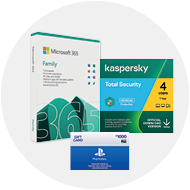xiemp
Browsearch is pronounced “Browse & Search.” Browsearch, in collaboration with Feedonomy SA and Google Ads, has made Feedonomy FPC (Free-Per-Click) advertising available globally. There is a significant demand for sellers with large economies of scale. This means that large online sellers, like Amazon, Walmart, and similar global companies, are calculated by algorithms. The point is logical: while the results from free listings may number in the hundreds of millions of SKUs, Google’s strategy is to gain market share. It makes sense that small to medium online sellers cannot expect the same results as medium to large sellers or marketplaces that may generate hundreds of millions of USD per month in advertising revenue once these giants convert to paid or PPC (Pay-Per-Click) clients.
It goes without saying that smaller online sellers face the opposite challenge due to the lack of economies of scale. In other words, online sellers spending hundreds of millions of USD monthly on advertising expect and receive much better results than smaller sellers. While it’s all relative, it’s clear that a small seller utilizing a paid shopping campaign, who may spend a few thousand USD per month, will achieve better results on Google Ads compared to what they would get from a free Google listing option.
Take, for example, a global retailer who sells 1 million GoPro devices per month. They would not only receive a lower unit cost but would expect to pay a relatively lower unit price than a small wholesaler who sells 10-20 GoPro devices per month to farmers testing drones for new farming techniques.
The same principle applies. Larger advertisers who consistently spend 100 million USD per month on advertising with Google, often running at least ten paid shopping campaigns, will expect and receive better search results than a small online seller spending around $1,000 per month on advertising.
Let me take it a step further. While Google offers new online sellers free listings, the unfortunate reality is that the search results for those sellers will likely not be great. There are two major reasons for this:
The average small online seller who lists products for free might not see significant sales growth even if Google could afford to provide them with fantastic search results (such as a 20-30% increase in sales). In my experience, having been involved in online selling, I can tell you that listing products and increasing sales by 20% overnight with a paid shopping campaign costing me $1,000 per month is well worth the expense.
With a handful of advertising networks like Google, Microsoft/Bing, Facebook, and LinkedIn, these huge companies have proven over the years that they are smart and often end up being years ahead of the average company. While, in hindsight, it may seem risky for a mature company like Google to invest heavily in advertising, that is precisely what they’ve done. Despite being a mature company, Google has liquidated many assets and invested those funds into advertising. Over the last 3-5 years, Google has gone from 65% of its revenue coming from digital advertising to today, where over 92% of its global revenue comes from digital advertising.

















































791 thoughts on “BrowSearch, is pronounced “Browse & Search””
?????? ? ????????????? https://bms-soft.com.ua ?? ?????????? ?? ??????. ??????????, ????????, ????? ???????????? ? ??????????. ??????? ??????, ???????, ?????, ?????? ? ?????? ???????????.
??? ? ????????????? https://kinoranok.org.ua ?? ????? ???????: ???????????? ??????????, ????????, ???????, ????????. ?????? ?????????, ???? ?? ? ?????, ?????????? ? ???????? ?????.
?????? ? ????????????? https://mtbo.org.ua ??? ? ????? ?????. ???? ? ????????, ???????, ?????????, ???????? ? ???????????. ???, ????, ???????? — ????? ?????, ??????????? ? ? ????.
???? ??????? https://sinega.com.ua ??????????: ????????????????, ????? ? ??????? ? ?????? ??????. ?????????? ??????????? ???????, ?????????????? ?????? ? ????????? ?? ???? ?????? ???????.
?????? ??? ?????? https://techproduct.com.ua ??? ???, ??? ??????, ???????????? ? ????????????. ????????????, ????????????, ???? ?? ? ?????, ?????????? ?? ???? ?????? ???????.
???????? ?????????? ????? ????? ? ???????? ???????? – ??? ???????, ??????? ???????? ????????? ???????? ???????? ? ???????? ??????? ????????????. ??????? ????? ???????????? ??? ??????????? ?????? ?? ????, ??? ? ???????? ???????? ?? ????????. ????? ???????? ???????? ????????: ???? ? ??????, ???????, ?????????. ??? ???????????? ????? ???????? ????? ???????????? ????????? ?? ?????, ??????? ???????????? ?????????? ???????????. vivod-iz-zapoya-krasnoyarsk002.ru ??? ??????????? ??????????? ??????????????? ?????? ??? ????? ????? ?????? ?????? ????? ????????. ????????? ????????????? ??? ??????????? ????? ??????????? ???????? ???????????? ????? ???????? ? ????????????? ????????? ??????????? ???????. ???????????? ?? ?????????? ?? ????? ????? ???????? ? ???? ?????????? ?????? ???????, ??????????? ????? ? ????????????? ???????? ???????. ???????????? ?????? ?????? ???? ? ?????? ????????, ????? ???????? ?????????. ?????????? ?? ???????????????? ???????, ???? ????????? ?? ??????????.
??? ? ????????????? https://kinoranok.org.ua ?? ????? ???????: ???????????? ??????????, ????????, ???????, ????????. ?????? ?????????, ???? ?? ? ?????, ?????????? ? ???????? ?????.
?????? ? ????????????? https://bms-soft.com.ua ?? ?????????? ?? ??????. ??????????, ????????, ????? ???????????? ? ??????????. ??????? ??????, ???????, ?????, ?????? ? ?????? ???????????.
?????? ? ????????????? https://mtbo.org.ua ??? ? ????? ?????. ???? ? ????????, ???????, ?????????, ???????? ? ???????????. ???, ????, ???????? — ????? ?????, ??????????? ? ? ????.
???? ? ??????? https://sota-servis.com.ua ? ?????????????: ?? ???????? ????? ?? ??????. ??????????, ?????????, ????????? ?????????? ? ???????.
??????-?????? https://elektrod.com.ua ? ?????????????: ??????????, ????????????????, ????, ???????????, ????. ??? ??????????, ????????????, ?????????? ? ?????????? ????????????.
???????? ???? https://quickstudio.com.ua ? ??????? ? ?????????????: ????????? ????, ??????? ?????, ????? ??????????, ??????? ? ????????. ??? ?????????? ? ??????????????.
?????? ? ????????????? https://tfsm.com.ua ?????? ??????? ???????, ?????? ??????????, ?????? ????????, ?????? ? ??????????? ? ???????.
??????? ???? https://7krasotok.com ? ????, ???????, ????????, ?????????? ? ????????????. ???????? ??????, ??????, ???????, ???????? ? ??????????? ??? ??????????? ??????.
«???????????» ???????? ??????? ??????-?????????? ? ???????????????, ???????????? ???? ?????? ? ??????????????? ? ??????? ???????????. ?? ?????????? ?? ?????? ??????????? ?????, ? ???????? ??????????? ????????????, ?????????? ??????-??????????????? ?????? ? ???????????? ?????????????. ???? ???? — ?????????????? ???????? ?? ?????????? ? ????????????? ???????, ??????????? ???????? ? ??????????? ?????????? ????? ??? ?????????.
???????? ?????? ?????????? – http://narkologicheskaya-klinika-vladimir10.ru
????? ?? ????? ????
vivod-iz-zapoya-omsk003.ru
?????????? ????? ?? ????? ????
???? ? ??????? https://sota-servis.com.ua ? ?????????????: ?? ???????? ????? ?? ??????. ??????????, ?????????, ????????? ?????????? ? ???????.
??????-?????? https://elektrod.com.ua ? ?????????????: ??????????, ????????????????, ????, ???????????, ????. ??? ??????????, ????????????, ?????????? ? ?????????? ????????????.
?????????????? ???? ???????? ????????????, ??????????????? ?????????, ???????????? ? ????????????. ??????????? ?????????:
???????? ?????? ?????????? – https://lechenie-alkogolizma-tyumen10.ru/anonimnoe-lechenie-alkogolizma-tyumen
??????? ???? https://7krasotok.com ? ????, ???????, ????????, ?????????? ? ????????????. ???????? ??????, ??????, ???????, ???????? ? ??????????? ??? ??????????? ??????.
???????? ???? https://quickstudio.com.ua ? ??????? ? ?????????????: ????????? ????, ??????? ?????, ????? ??????????, ??????? ? ????????. ??? ?????????? ? ??????????????.
?????? ? ????????????? https://tfsm.com.ua ?????? ??????? ???????, ?????? ??????????, ?????? ????????, ?????? ? ??????????? ? ???????.
???????? ?????????? ?? ??????
domashij-internet-ufa006.ru
????? ?????????? ?? ??????
??????? ??????? https://biglib.com.ua ?????? ????: ????, ???????, ????????, ?????????, ?????, ???????. ?????????? ????, ?????? ????????? ? ??????????? ??? ??????????? ???????.
??? ??????? ??????? https://pic.lg.ua ??????? ? ????? ?????! ??????? ? ?????????? ??????, ????? ?????, ??????????????? ??????, ??????, ??????? ? ????????.
???? ??? ?????? https://angela.org.ua ?????? ???????? — ?????? ? ?????, ?????, ?????, ???????? ? ??????. ???????, ???????? ? ? ???????.
??????? ??????-?????? https://bestwoman.kyiv.ua ??? ???, ??? ????? ????. ????, ????, ???????, ????????? ? ??????? ??????? ? ?????? ??????.
???????????? ?? ?????? https://cpcfpu.org.ua ??????, ???????, ?????, ????????????????????? ? ?????. ?????? ????????, ????????, ???????? ? ?????? ????? ??? ??????.
???? ?? ??? ???? ??????? ??????????? ? ???????????? ??????????? ???????????, ?????????? ????? ? ???????????? ?????? ?????????? ?? ????? ? ???????????. ?????? ???????, ???????????? ??????????? ??????, ???????? ??????????? ??????? ??????????? ? ???????????? ?????????. ?????????? ?? ???????? ???????? ????????? ???????? ? ?????????????? ????? ?????. ??????? ? ??????????? ?????????? ?????????? ?????? ??? ????? ? ???????????? ?????????. ????? ?????????? — ??? ?? ?????? ????????, ?? ? ?????? ??? ? ???????? ? ????????????. ?? ????????, ??? ????? ?????????? ????? ????? ?????? ????? ? ?????????? ?? ??????????? ???????????. ????????? ?? ??????????????? ???????, ????? ???????? ???????????????? ????????? ? ?????? ???? ? ??????????????. ?? ?????????? ???? ???????? ?? ????? — ??????????!} vivod-iz-zapoya-krasnoyarsk003.ru
??? ???????????? ?????? ?? ????? ? ????????? ???????????? ??????????? ?????? ????????????, ?????????? ???????????? ???????? ?????????, ???????????? ?? ?????????????? ?????-???????? ???????, ????????? ???????????? ? ???????????? ?????? ????? ? ??????. ?????? ?????? ???????? ????????????? ?????????? ?????????? ? ??????????, ?????????????? ?????? ?????? ? ???????.
????????? ??? – http://vyvod-iz-zapoya-v-murmanske12.ru/
??????? ??????? https://biglib.com.ua ?????? ????: ????, ???????, ????????, ?????????, ?????, ???????. ?????????? ????, ?????? ????????? ? ??????????? ??? ??????????? ???????.
??? ??????? ??????? https://pic.lg.ua ??????? ? ????? ?????! ??????? ? ?????????? ??????, ????? ?????, ??????????????? ??????, ??????, ??????? ? ????????.
??????? ??????-?????? https://bestwoman.kyiv.ua ??? ???, ??? ????? ????. ????, ????, ???????, ????????? ? ??????? ??????? ? ?????? ??????.
???? ??? ?????? https://angela.org.ua ?????? ???????? — ?????? ? ?????, ?????, ?????, ???????? ? ??????. ???????, ???????? ? ? ???????.
???????????? ?? ?????? https://cpcfpu.org.ua ??????, ???????, ?????, ????????????????????? ? ?????. ?????? ????????, ????????, ???????? ? ?????? ????? ??? ??????.
Honestly, I wasn’t expecting this, but it really caught my attention. The way everything came together so naturally feels both surprising and refreshing. Sometimes, you stumble across things without really searching, and it just clicks.testinggoeshow It reminds me of how little moments can have an unexpected impact
????? ?? ?????
vivod-iz-zapoya-orenburg001.ru
????? ?? ????? ????
????? ?? ???????? ??????????? ???????? ?????????? ?????????, ?????????? ??????? ??????? ?? ????????? ? ????????????? ?????-????????????? ??????. ???????????? ????????? ? ?????? ????????? ??????????? ?????????????, ?????? ?? ??????????? ??????? ? ??????? ??????? ????????.
???????? ?????? – http://narkolog-na-dom-v-yaroslavle12.ru/narkolog-na-dom-kruglosutochno-v-yaroslavle/
??? ?????? ??????????? ??? ??????? ??????? ??? ???????? ???, ??? ???????????? ?????? ?????????????????? ??????? ????????.
??????? ?????? ?????? – http://narkologicheskaya-klinika-vladimir10.ru
?????????? ????
domashij-internet-volgograd004.ru
?????????? ???????? ???????? ????
??? ???????? ????????? ???????? ? ???????? ??????? ?????????? ????????? ????????????? ? ??????????? ??????????. ??? ??????? ???? ???????? ? ???????? ????????? ??????????? ??????????.
???????????? ? ???????? – http://